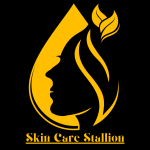“How to start a skincare business: Unveil the secrets to launching your own brand with essential tips for market research, product development, and effective marketing strategies.”
Starting a skincare business is like crafting a potion that blends science, beauty, and passion. With the global skincare industry booming, there’s never been a better time to dive into this vibrant market. Whether you’re an aspiring entrepreneur or a skincare enthusiast, this journey offers a chance to create products that not only enhance beauty but also boost confidence.
In this guide, we’ll explore the essential steps to transform your skincare dreams into a thriving business reality, from understanding skin types and sourcing quality ingredients to branding and marketing your unique creations. Let’s unlock the secrets to glowing success!

How To Start A Skincare Business
Starting a skincare business involves researching your market, creating a unique product line, and developing a strong brand identity. You’ll need to comply with regulations, create a solid business plan, and market your products effectively. Here’s a detailed guide to help you launch a successful skincare business.
Understanding the Skincare Market
Before diving into the skincare business, it’s crucial to understand the industry landscape. The skincare market is vast, encompassing a range of products such as cleansers, moisturizers, serums, and sunscreens. It’s important to identify your target audience, whether it’s anti-aging products, natural skincare, or specialized treatments for specific skin conditions.
Researching market trends and consumer preferences can help you identify gaps in the market and opportunities for your brand. Keywords like “skincare trends,” “natural ingredients,” and “target audience” are essential to include in your research phase.
Developing Your Skincare Line
Creating a unique and effective skincare line is at the heart of your business. This involves selecting high-quality ingredients and ensuring they are safe and effective for various skin types. Consider the growing demand for organic and cruelty-free products, which can be a significant selling point.
Formulating your products may require collaboration with dermatologists or cosmetic chemists to ensure safety and efficacy. Common terms to use in your branding and marketing include “natural skincare,” “organic,” “dermatologist-tested,” and “cruelty-free.”
Branding and Packaging
A strong brand identity is essential for standing out in the crowded skincare market. Your brand should reflect your business’s values and appeal to your target audience. This includes choosing a memorable name, designing a logo, and developing packaging that is both attractive and functional.
Your packaging should also comply with all regulatory requirements, including ingredient labeling and safety warnings. Key phrases to highlight in your branding efforts are “eco-friendly packaging,” “luxury skincare,” and “brand identity.”
Legal and Regulatory Considerations
Navigating the legal landscape is a critical step in starting a skincare business. This includes understanding the regulations for skincare products in your country, such as ingredient restrictions, labeling requirements, and testing protocols.
It’s also important to consider obtaining certifications like organic or cruelty-free labels, which can enhance your brand’s credibility. Ensure that your business complies with all health and safety standards to avoid legal issues down the line. Keywords such as “FDA regulations,” “cosmetic labeling laws,” and “safety standards” should be part of your legal compliance strategy.
Marketing Your Skincare Products
Effective marketing is key to reaching your target audience and building brand awareness. Utilize digital marketing strategies such as SEO, social media marketing, and influencer partnerships to promote your products.
Content marketing, including blog posts, videos, and tutorials, can educate consumers about your products and skincare tips. Engage with your audience through social media platforms and email newsletters to build a loyal customer base. Phrases like “skincare tips,” “product reviews,” “beauty influencers,” and “social media strategy” are important to include in your marketing content.

Market Research
Industry Analysis
Current Trends in Skincare
The skincare industry is experiencing a surge in demand for natural and organic products. Consumers increasingly seek clean beauty brands that prioritize sustainability and ethical sourcing.
Anti-aging treatments and personalized skincare solutions are also trending, driven by advancements in dermatological science and consumer desire for tailored skincare routines.
Growth Potential and Market Size
The global skincare market continues to expand, with projections suggesting significant growth over the next decade. Factors like increasing consumer awareness, rising disposable incomes, and a growing focus on self-care are contributing to this growth.
The market size is expected to reach billions, with substantial opportunities in emerging markets and online retail channels.
Target Audience
Demographics
The primary demographics for skincare products include a diverse range of age groups, with significant interest from millennials and Gen Z. Both men and women are engaged, with women typically driving a higher share of the market.
Higher-income brackets tend to invest more in premium skincare solutions, while there is also a strong market among middle-income consumers seeking affordable yet effective products.
Psychographics
Skincare consumers value quality and effectiveness. They prefer brands that align with their lifestyle and values, such as cruelty-free, vegan, and eco-friendly products.
Many seek transparency in ingredient sourcing and product formulation. This audience is also influenced by trends on social media, particularly from influencers who promote skincare routines and new products.
Competitive Analysis
Major Competitors
The skincare industry is highly competitive, with major players including brands like L’Oréal, Estée Lauder, and Procter & Gamble. These companies dominate various segments, from luxury skincare to mass-market products.
Analysis of Competitors’ Strengths and Weaknesses
Established brands benefit from strong brand recognition and extensive distribution networks. They often have significant resources for research and development, enabling them to innovate rapidly. However, they may face challenges with agility and adapting to new consumer trends compared to smaller, niche brands.
Emerging brands, on the other hand, often leverage unique selling points such as specialized ingredients or ethical practices but may struggle with scaling.
Identification of Market Gaps and Opportunities
There is a growing opportunity in the niche of clean beauty and sustainable packaging. Additionally, the rise of personalized skincare products, leveraging data and AI for custom formulations, presents a significant market gap. Brands that can combine innovation with ethical practices are well-positioned to capture market share.

Developing Your Product Line
Product Conceptualization
When developing a skincare product line, it’s crucial to start with product conceptualization. Identify the types of products your brand will offer, such as cleansers, moisturizers, and serums. Highlight your unique selling points (USPs) to differentiate your products from competitors.
Focus on what makes your products stand out, whether it’s innovative ingredients, specific skin benefits, or a unique formulation process. This phase is essential for capturing consumer interest and building brand loyalty.
Ingredient Sourcing
Ingredient sourcing is a critical aspect of product development. Decide between natural and synthetic ingredients based on your brand’s philosophy and target audience. Conduct thorough supplier research to ensure quality and consistency.
Partner with suppliers who align with your brand values, especially regarding ethical and sustainable sourcing. Consumers increasingly demand transparency and sustainability, making this an important consideration for brand reputation.
Product Formulation and Testing
Collaborate with chemists or skincare experts to create effective and safe products. Product formulation requires a deep understanding of how different ingredients interact and benefit the skin. Safety and efficacy testing are crucial steps to ensure the products meet consumer expectations and regulatory standards.
Compliance with regulations, such as those set by the FDA or EU, is mandatory to avoid legal issues and ensure consumer safety.
Packaging and Branding
Packaging and branding are key to attracting and retaining customers. Design considerations should include aesthetics and functionality, ensuring that packaging is both visually appealing and practical. Eco-friendly and sustainable packaging options are increasingly popular as consumers become more environmentally conscious.
A strong branding strategy, including a memorable logo, cohesive brand colors, and a catchy tagline, helps establish brand identity and appeal to your target market.
Business Structure and Legal Considerations
Business Registration and Licensing
When starting a business, it’s crucial to choose a memorable and descriptive business name. This name should reflect your brand and be easy to find online. Registering your business structure, whether an LLC or corporation, is a key step in protecting your personal assets and establishing legal credibility.
Don’t forget to obtain the necessary permits and licenses, which vary depending on your industry and location. Proper registration and licensing help avoid legal issues and establish trust with customers.
Intellectual Property Protection
Protecting your intellectual property is vital. Trademarking your brand name and logo ensures that your identity is unique and legally safeguarded. If you have developed unique formulas or processes, consider patenting them to secure exclusive rights.
This not only protects your innovations but also enhances your brand’s value. Intellectual property protection is a critical component of long-term business success.
Legal Compliance
Compliance with legal regulations is essential for all businesses. For those in the consumer goods sector, FDA regulations and labeling requirements are particularly important. Ensure that any claims you make, such as “anti-aging” or “hypoallergenic,” are substantiated by reliable evidence.
Additionally, understand the import/export regulations if your business involves international trade. Staying compliant with these legal standards helps avoid penalties and build consumer trust.

Setting Up Your Business Operations
Manufacturing and Production
In-house Production vs. Outsourcing
Deciding between in-house production and outsourcing is crucial for cost efficiency and control over quality. In-house production allows for direct oversight of processes and product consistency, while outsourcing can reduce costs and offer flexibility. Many businesses weigh factors like production capacity, labor costs, and expertise when choosing between these options.
Quality Control and Assurance Processes
Implementing robust quality control and assurance processes is essential to maintain product standards. This includes regular inspections, testing, and compliance with industry standards.
Companies often use quality management systems (QMS) and continuous improvement practices like Six Sigma to enhance their quality control measures.
Scaling Production as Demand Grows
As demand increases, scaling production efficiently becomes a priority. Businesses may need to invest in new equipment, hire additional staff, or streamline processes. Scalability can be achieved by optimizing supply chain management and leveraging technologies like automation and AI-driven analytics.
Inventory Management
Inventory Tracking Systems
Effective inventory tracking systems are vital for managing stock levels and minimizing losses. Technologies such as barcoding, RFID, and inventory management software can provide real-time data on stock availability. Accurate tracking helps prevent overstocking or stockouts, ensuring a smooth supply chain flow.
Storage and Warehousing Considerations
Proper storage and warehousing are crucial for preserving product quality and facilitating efficient distribution. Factors like location, storage conditions, and security measures are key considerations. Companies often use warehousing strategies like just-in-time (JIT) or cross-docking to optimize space and reduce costs.
Supply Chain and Distribution
Logistics and Shipping Options
Choosing the right logistics and shipping options can significantly impact delivery times and costs. Businesses should evaluate different shipping methods, including air, sea, and land, based on their product types and market locations. Optimizing logistics can enhance customer satisfaction and reduce operational expenses.
Managing Supplier Relationships
Strong supplier relationships are essential for a reliable supply chain. Building trust and maintaining open communication can lead to better terms and more flexible arrangements. Regular performance evaluations and collaborative planning with suppliers help ensure timely delivery and consistent quality.
Building Your Brand and Online Presence
Branding and Positioning
Crafting a compelling brand story is essential for connecting with your audience. Start by identifying your brand values and mission to establish a clear and authentic identity. This foundational work ensures your brand resonates with your target market and stands out in a crowded space.
Website Development
Choosing the right e-commerce platform, such as Shopify or WooCommerce, is crucial for a seamless online shopping experience. Prioritize user experience (UX) and design to create an intuitive and engaging website. Implement search engine optimization (SEO) best practices to enhance visibility and drive organic traffic to your site.
Social Media and Content Marketing
Selecting the right social media platforms, like Instagram or TikTok, is key to reaching your audience effectively. Develop a robust content strategy that includes blogs, videos, and tutorials to keep your audience engaged and informed. Consider influencer partnerships and collaborations to amplify your brand’s reach and credibility.
Email Marketing and Customer Engagement
Building a targeted email list is vital for personalized communication. Design effective newsletters and campaigns to keep your audience informed and interested. Implement customer loyalty programs and incentives to foster long-term relationships and boost engagement.

FAQs
What are the initial steps to start a skincare business?
Starting a skincare business involves several key steps. Begin with market research to understand your target audience and competitors. Develop a business plan outlining your brand, product line, marketing strategy, and financial projections.
How do I choose the right niche for my skincare business?
Choosing a niche is crucial for standing out in the skincare industry. Consider your interests and expertise, as well as market demand. Popular niches include organic skincare, anti-aging, acne treatment, or products for sensitive skin. Identifying a specific audience helps tailor your products and marketing efforts effectively.
What are the legal requirements for starting a skincare business?
Legal requirements vary by location, but generally include registering your business, obtaining a business license, and ensuring your products comply with cosmetic regulations.
You may also need to register trademarks for your brand and products, and ensure proper labeling with ingredients and safety warnings. Consulting with a legal expert can help navigate these requirements.
How can I develop unique skincare products?
Creating unique products involves a combination of creativity, research, and collaboration with cosmetic chemists. Start with a clear vision of what you want to achieve, whether it’s a specific skin concern or innovative ingredient.
Experiment with formulations, and conduct thorough testing for safety and efficacy. Unique packaging and branding can also set your products apart.
What are the costs involved in starting a skincare business?
Costs can vary widely depending on the scale of your business. Key expenses include research and development, sourcing ingredients and packaging, manufacturing, marketing, and legal fees. Setting up a professional website and e-commerce platform is also essential. Budgeting for unexpected costs and keeping detailed financial records is crucial.
How do I market my skincare products effectively?
Effective marketing strategies include building a strong online presence through social media, influencer partnerships, and content marketing. A professional website with high-quality product images and descriptions is essential.
What are the best sales channels for skincare products?
Your sales channels depend on your business model and target audience. Options include selling through your own e-commerce website, online marketplaces like Etsy or Amazon, retail stores, or through distributors. Participating in local markets or beauty expos can also help raise brand awareness.
How important is packaging in the skincare industry?
Packaging is crucial in the skincare industry as it not only protects the product but also serves as a key marketing tool. Attractive and functional packaging can draw attention, communicate brand values, and enhance the customer experience. Sustainable packaging options are also increasingly important to consumers.
What role does customer feedback play in a skincare business?
Customer feedback is invaluable for improving your products and customer experience. It provides insights into what customers like or dislike, and areas where you can improve. Regularly soliciting feedback through surveys, reviews, and direct communication can help you refine your offerings and better meet customer needs.
How can I ensure the quality and safety of my skincare products?
Ensuring quality and safety involves sourcing high-quality ingredients, following good manufacturing practices, and conducting rigorous testing. Stability and microbiological testing can prevent contamination and ensure a long shelf life. Clear labeling with usage instructions and warnings is also essential to inform consumers.
Conclusion
Starting a skincare business can be an exciting and rewarding venture, offering the opportunity to share your passion for skincare and beauty with a wider audience. To ensure success, it’s crucial to conduct thorough market research, develop a unique and high-quality product line, and craft a compelling brand story that resonates with your target audience.
Additionally, setting up efficient operations, from sourcing ingredients to marketing and distribution, plays a key role in building a sustainable business. By staying informed about industry trends and continuously engaging with your customers, you can adapt and grow your skincare business in an ever-evolving market.
Remember, the foundation of any successful business lies in dedication, creativity, and a genuine commitment to delivering value to your customers.

